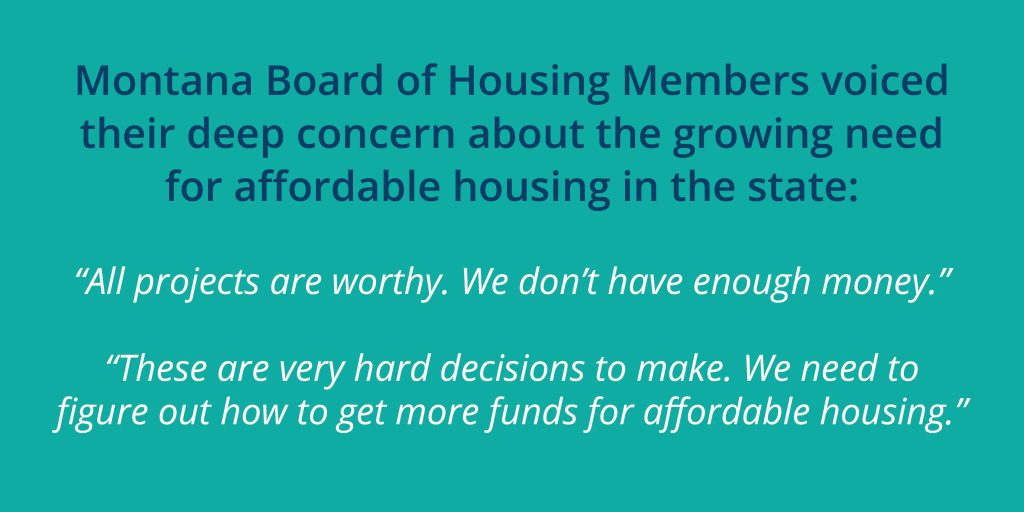On October 28th, 2019, the Montana Board of Housing awarded $31.6 million in federal Low-Income Housing Tax Credits to affordable housing projects across the state. These awards are a big deal for the communities with successful projects, but the process also paints a picture of the unmet need for affordable housing throughout the state.
First, a bit of background on Low-Income Housing Tax Credits (or credits for short). Credits are a critical tool that allow private developers to construct or preserve housing targeted to families living on low incomes. Credits allow developers to cover construction costs while receiving lower and more affordable rents. The amount of credits each state receives is limited and the process for receiving an allocation is highly competitive. This year, the Montana Board of Housing received 16 proposals, representing 488 new or preserved rental units at a total cost of $85 million, and it ultimately selected six projects for funding.
The six communities that received this year’s round of housing tax credits are:
In total, these credits will support the construction and rehabilitation of 186 affordable rental homes desperately needed by lower income families and seniors. This is very exciting news for the selected communities. At the same time, nearly every community in our state faces a critical deficit of affordable housing and struggles to find the tools and money to work toward closing the gap. There is no county where a single parent working full-time at minimum wage can afford to rent a modest two-bedroom home. With the current supply of affordable housing, Montana faces a shortage of 17,420 homes that are affordable for Montanans living in poverty.
On average, the Montana Board of Housing can select one out of every five proposals it sees. It is not uncommon for applicants to submit their proposal four or five times before they are successful. At last week’s public meeting, Board of Housing members repeated that voting on the final credit awards is the most difficult decision they make each year. All projects are worthy. Being turned down for housing tax credit funding does not mean there isn’t great need in the community— there simply isn’t enough money to meet the overwhelming demand. Members were clear and direct: Montana must figure out how to invest state resource to leverage federal support and fund more projects.
Housing tax credits are a vital resource, and we depend on this federal funding to finance affordable housing production and preservation. But it is more and more obvious that this funding does not stretch nearly far enough for Montana to provide the affordable and safe homes our families and communities need. We can and must do better. Our state government must get serious about investing its resources for affordable housing.


MBPC is a nonprofit organization focused on providing credible and timely research and analysis on budget, tax, and economic issues that impact low- and moderate-income Montana families.